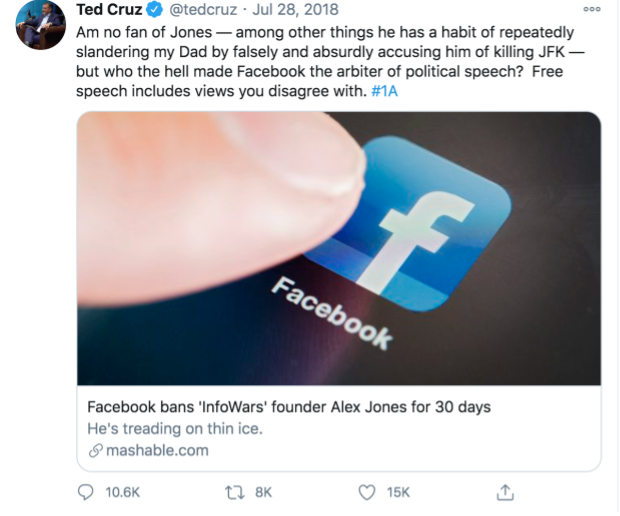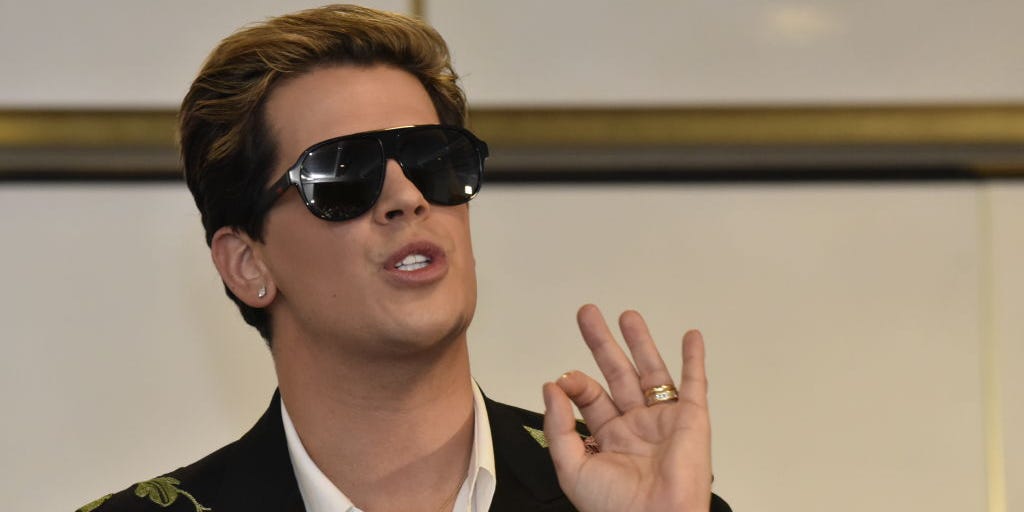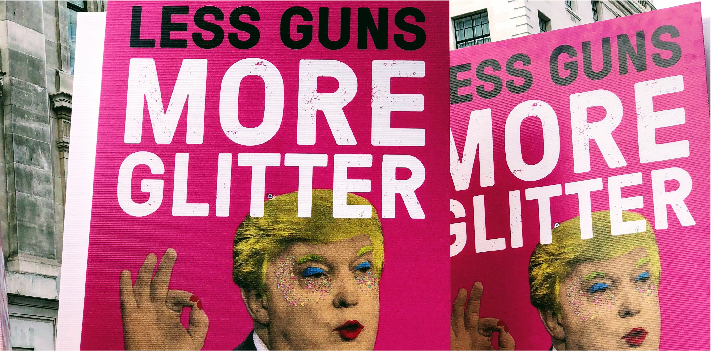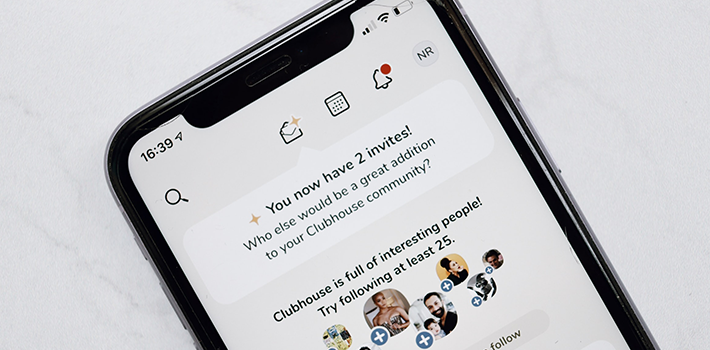It’s 2020, and we’re living in a time when the President of the Land of the Free needs a “fact-checked” label on his tweets.
A time when Facebook has to ban all political ads a month before a general election, just to make sure misinformation isn’t spread.
Social media giants are now, more than ever, getting involved in what can and can’t be said on their platforms.
And a good amount of people (particularly on the right) are not happy with the situation, outraged that private companies are suppressing their voices.
Meanwhile, those on the left are equally unhappy, arguing for the need for more measures to control hate speech and bigotry online.
It’s all a bit tense, particularly because there has been an increasing amount of predominantly conservative public figures facing disciplinary measures from social media companies in recent years.
But is this really just an extension of the partisan squabbles we have grown so accustomed to seeing? Or are there legitimate freedom of speech concerns to address?
Are these crackdowns necessary for the protection of democracy and social tolerance, or are they an exercise in censorship?
In this article, we will be taking a look at 4 separate cases in which social media platforms have come down on a celebrity, and the context and consequences of each case.
Because not all social media bans are created equal – and we’re going to be diving into the nuanced reasons behind each of them.
Alex Jones
Let’s start off with an easy one – one that both the left and right can agree is the personification of ban-able offenses.
Alex Jones is an alt-right radio show host. You might know him as the guy who said the Sandy Hook shooting was staged and that the dead children were actually just actors.

Jones managed to get himself banned from every social media platform you can think of, including YouPorn – yes, YouPorn. And it’s not just because his conspiracy theories are offensive.
Jones’ show InfoWars is known to be somewhat of a fake news machine. It’s a cesspool of blatant lies that could have serious consequences on public safety.
In fact, the FDA recently had to get involved to shut him down because he claimed his InfoWars “brain pills” could cure COVID-19.
The guy’s a quack, and even conservatives have issues with him. So it’s no wonder that private social media companies with reputations to uphold, don’t want him to use their platform to continue to spew lies.
But despite the bipartisan consensus around Jones’ character, the unanimous ban against him from all mainstream social media outlets raised a very compelling question about the power that these companies have over public discourse, as Ted Cruz illustrates below.

It was posited that a widespread ban across all mainstream platforms could rile up Jones’ followers, ultimately increasing his viewership through other channels.
In fact, as the New York Times reported, Jones himself arrogantly predicted that this would happen in 2018 when YouTube robbed him of his then 2.4 million subscribers.
But although his base was initially rallied, his viewership was halved in the weeks following the Facebook and YouTube removal, and of course, with the bans ongoing, it hasn’t gotten better since.
The fact is, while most of us agree that Jones has done things that are unquestionably ‘bannable’, both the NYT article and unfortunately Ted Cruz, do bring up a very interesting argument:
“That Facebook and Google, which owns YouTube, muffled one of the internet’s loudest voices so quickly illustrates the tremendous influence a few internet companies have over public discourse and the spread of information.”
And it is precisely because of this great power that social media companies need to exercise sound judgment, show responsibility, and not cry wolf.
Milo Yiannopoulos
Yiannopoulos is a British far-right political commentator, pro troll, and former Breitbart editor – He’s also an example of when social media giant Twitter, cried wolf.
Yiannopoulos is notorious for his many controversial opinions on feminism, Islam, and political correctness, to name a few. And, as the Guardian put it, he had a knack for “turning hate speech into show business.”

But it was his bad review of the all-female remake of the movie Ghostbusters, and in particular of African American actress Leslie Jones, that earned him his Twitter exile.
I’ll spare you the details. But in a nutshell, his review was riddled with misogynistic remarks and thinly veiled racial slurs. Then, under no instruction from Milo himself, his supporters took it upon themselves to flock to Jones’ account and unleash a barrage of racial abuse her way.
Given that Twitter could not hold him accountable for the actions of his audience, the subsequent ban was implemented under murky pretenses.
Naturally, this furthered Yiannopoulos’ narrative that he had only been silenced because of his conservative beliefs. And this is where the importance of consistency when it comes to disciplinary action emerges as key.
Milo Yiannopoulos’ brand is very well established. In fact, his offensive review was so quintessentially him, it’s surprising anyone even batted an eyelid. He’d been being himself on Twitter for years at this point.
So why ban him now? Why were Leslie Jones and Ghostbusters a step too far?
We’re talking about a company that continued to allow the former leader of the KKK, David Duke, to tweet for a full 4 years after the incident in question (they only banned him in July of 2020)
The truth is that Leslie Jones is a beloved public figure, and the overwhelming call for disciplinary action against Yiannopoulos was too loud for Twitter’s PR team to ignore.
But despite what the public opinion might say in the heat of the moment, the blatant flaw in logic being exercised by Twitter remains glaringly obvious.
The hate speech guidelines they designed to keep everyone ‘safe’ need to be implemented consistently across the board, or they lose all credibility.
Twitter knew who Milo Yiannopoulos was for years before this incident. And they certainly knew who David Duke was.
In fact, JK Rowling has been repeatedly causing waves for transphobic remarks for months now. And yet a ban never seems to have been on the cards for her.
Until Twitter clarifies their position on hate speech and implements disciplinary measures in accordance with them, regardless of public uproar or political affiliation, they will continue to get caught in between attempts to appease both sides of the aisle, emerging as flakey hypocrites every time.
Joe Rogan
Early in September, Spotify began uploading episodes of Joe Rogan’s wildly popular podcast. This was part of a recent licensing deal that would give the streaming company exclusive rights to the hit show.
Fans were quick to notice that eliminated from the repertoire of the JRE playlist were the episodes involving far-right controversial figures, including none other than Alex Jones and Milo Yiannopoulos.

This promptly made waves online, causing such intense outrage that Alex Jones, of all people, stepped in for a (highly ironic) fact check. He assured viewers that this wasn’t a deliberate censorship decision, but rather a delayed content migration issue.
Soon after censorship denials ensued from Rogan and Spotify themselves, outrage sparked yet again. This time over episodes that featured Rogan joking about Caitlyn Jenner, as well as making remarks about trans activists having an “agenda.”
Then came the leaks. Vice reported in mid-September that there had been an all-hands meeting at Spotify during which several employees voiced their opposition to Joe Rogan’s past comments, focusing primarily on his transphobic remarks.
The situation got pretty complicated. But ultimately, Spotify decided to keep the episodes in question up, going against the apparent internal pressure placed upon them by staff.
Speaking on the situation, Spotify released the following statement to Motherboard: From Vice: Spotify’s Statement on Joe Rogan controversy
From Vice: Spotify’s Statement on Joe Rogan controversy
The statement was carefully worded. It supported the LGBTQ community, showed inclusivity and openness within the workplace, and demonstrated a responsible framework for manual content reviews – the perfectly engineered PR response.
They went onto say:
“The fact that we aren’t changing our position doesn’t mean we aren’t listening. It just means we made a different judgment call.”
Much more courageous than Twitter, we’ve got to give it to them.
But, why then, almost one month later, are a number of the episodes in question still missing from the full playlist they promised?
What exactly were they expecting when they signed on Joe Rogan, a personality known for his controversial opinions and problematic friends?
Transparency and trust are essential when it comes to social media companies who can single-handedly shape public discourse and eliminate voices from the discussion.
And it doesn’t matter how well-worded your statement is, if you publicly double down on a decision to go against online activists, as well as your own staff, it will mean nothing if your actions contradict it.
Donald Trump
So how does all this tie into the current climate?
Well, it casts a shadow over the decisions Facebook has been taking against QAnon and new political ads, that’s for sure.
If people don’t trust the social media companies to be unbiased and consistant, they aren’t going to trust Twitter’s highly necessary fact-checks of Donald Trump’s tweets.

There is already so much division between both schools of political thought. And with much of Trump’s rhetoric already focused around fuelling that fire, petty internet fights and mini PR disasters do much more harm than can be explored in this article.
History has taught us that fake news spreads 70% faster than real news on social media.
And thanks to the work of Alexander Nix and Cambridge Analytica, we have frightening insights into how targeting the “persuadables” in swing states with just the right amount of propaganda can affect the outcome of an election.
So as long as Twitter gives alt-right pundits ammunition to call things like the Milo Yiannopoulos ban a “Ghostbusters” motivated, socially woke over-reaction, legitimate efforts to stop dangerous fake news stories (propagated by the likes of Alex Jones) will remain discredited.
And this is, quite literally, a destiny-altering phenomenon of which we must be very wary.
Yes, social media content guidelines will vary from company to company. And yes, they are, in fact, private entities, so it is truly up to them what is or is not allowed on their site.
But these double standards and this lack of consistency in the adhering to the supposed guidelines just serves to ramp up mistrust on both sides of the aisle.
The social media top dogs need to find a way to differentiate between the attention-seeking Milos, the opinion-stating Rogans, and the fear-mongering, lie-spreading Joneses. Otherwise, the larger societal consequences will be too significant to reverse.
We’re no PR strategists, nor user guideline experts. But what we do know is that there has to be a clear distinction between silencing voices for stating their opinions, and rightfully confiscating platforms from people who are too dangerous to have them.





